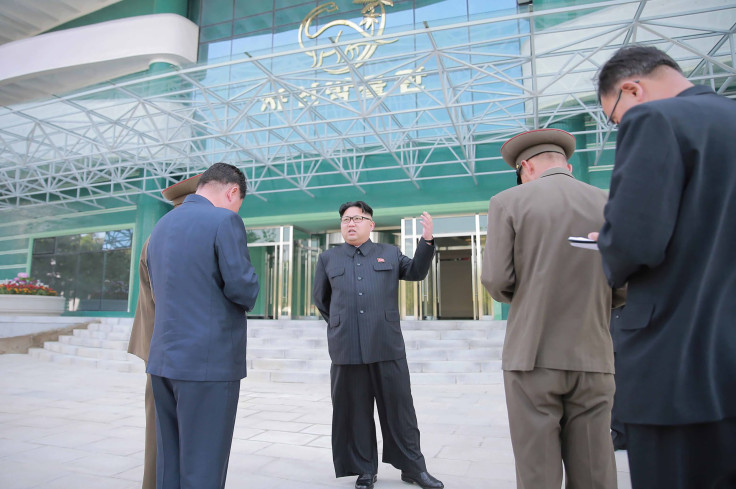North Korea’s Peace Talks Proposal Rejected By South Korea As Propaganda

South Korea’s defense ministry responded Monday to a North Korean proposal for peace talks by asking Pyongyang to first clarify its stance on denuclearization, according to reports. On Saturday, the Ministry of the People’s Armed Forces of the National Defense Commission of North Korea had proposed a working-level contact with the South in order “to defuse the military tension and prevent in advance” a second Korean war.
In its proposal sent to “military authorities” in Seoul, Pyongyang said: “We propose to hold working-level contact for opening the north-south military authorities' talks at the date and place both sides deem convenient in late May or early June in order to defuse the military tension on the Korean peninsula and create confidence-building atmosphere between the military authorities of the north and the south.”
At a press briefing Monday, Moon Sang-gyun, spokesman for South Korea’s defense ministry, said: “We expressed regret that North Korea proposed to hold military talks without any mention of its nuclear problem. We will firmly keep the stance that the North’s steps toward denuclearization should be a top priority when it comes to dialogue with Pyongyang.”
The North’s proposal for talks, which made no mention of its nuclear program, was seen by some analysts as propaganda aimed at dividing the South Korean people.
Moon Sung-mook, a senior researcher at the Korea Institute for National Strategy, told the Korea Times: “When the North proposed holding talks, some people in the South would think that the government should accept such an offer, and this could create conflict among South Korean people.”
The unification ministry in South Korea also asked North Korea on Monday to stop its accusations about South Korea raising tensions on the peninsula. Officials and analysts both consider the proposal a ploy by Pyongyang to show Seoul in a bad light, as well as a way to try ease crippling international sanctions.
“The North’s dialogue offer appears to be aimed at driving a wedge between people living in the South and weaken the international sanctions regime,” unification ministry spokesman Jeong Joon-hee told a press briefing, Yonhap reported.
North Korea conducted its fourth nuclear test in January, and tested long-range missiles soon after, which led to a new round of international sanctions being imposed on the isolated country.
© Copyright IBTimes 2024. All rights reserved.





















